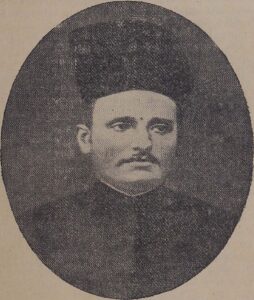GS I-History

Karsandas Mulji has recently gained attention due to the release of the biopic Maharaj.
Early Life and Education
- Born in 1832 in Bombay, into a Gujarati Vaishnav family.
- A prominent member of the Gujarati Gnan-prasarak Mandali (Gujarati Society for the Spread of Knowledge), established by students of Elphinstone College.
- Studied at Elphinstone College, where he was classmates with notable reformists like poet Narmad and educationist Mahipatram Neelkanth.
- Contributed writings to Rast Goftar and co-founded Streebodh, a women’s magazine launched in 1857.
- Briefly ran a weekly publication called Mumbainu Bajar (The Bombay Market).
- Served as Assistant Superintendent of Rajkot State, during which he published Vignanvilas, a monthly journal focused on science and industry.
- Rast Goftar was an Anglo-Gujarati newspaper started by Dadabhai Naoroji in 1851.
Challenges and Social Struggles
- His advocacy for widow remarriage led to his expulsion from his family and excommunication from his caste after he traveled overseas.
- Later found employment at a charitable school established by Sheth Gokaldas Tejpal.
Fight Against Exploitation
- In 1855, he launched Satyaprakash with financial backing from progressive individuals.
- Despite being a Vaishnav himself, he openly criticized the exploitation of female devotees by Vaishnav priests.
- His relentless activism led to the landmark Maharaj Libel Case, securing his legacy as a fearless journalist and reformer.
- He passed away in 1871.
Background: The Jivanlalji Maharaj Controversy
- Jivanlalji Maharaj, a Vaishnav priest, refused to appear in Bombay High Court in a case initiated by Dayal Motiram in 1858.
- He forced Vaishnav followers to accept three conditions:
- No follower could write against him.
- No follower could take him to court.
- If a lawsuit was filed, devotees would bear all legal costs and ensure he never appeared in court.
- Karsandas denounced this agreement in Satyaprakash, calling it gulami-khat (agreement of slavery).
- As discontent grew, Jivanlalji fled Bombay, while another young priest, Jadunath Maharaj, attempted to restore the sect’s reputation through liberal views.
- The debate eventually shifted toward the divine origins of scriptures, leaving the controversy unresolved.
The Maharaj Libel Case (1862)
- Narmad, in Satyaprakash, challenged Vaishnavite priests’ unethical practices.
- His article, Hinduono Asal Dharma ane Haalna Pakhandi Mato (The Original Religion of Hindus and Present-Day Hypocrisies), alleged that priests engaged in sexual misconduct with female devotees.
- The article also accused Gokulnath, the grandson of Vallabhacharya (founder of the Pushtimarg sect of Vaishnavism), of endorsing immorality.
- This led to one of the most significant legal battles of the 19th century, compared to the trial of Warren Hastings.
- Jadunath Maharaj filed a libel suit against Karsandas Mulji and the newspaper’s publisher, Nanabhai Ranina.
- The court ruling favored Karsandas, affirming that all individuals, including religious figures, are equal before the law.
- The judgment rejected the state’s role as “gaubhraman pratipa” (protector of cows and Brahmins), marking a significant moment in India’s legal history.




